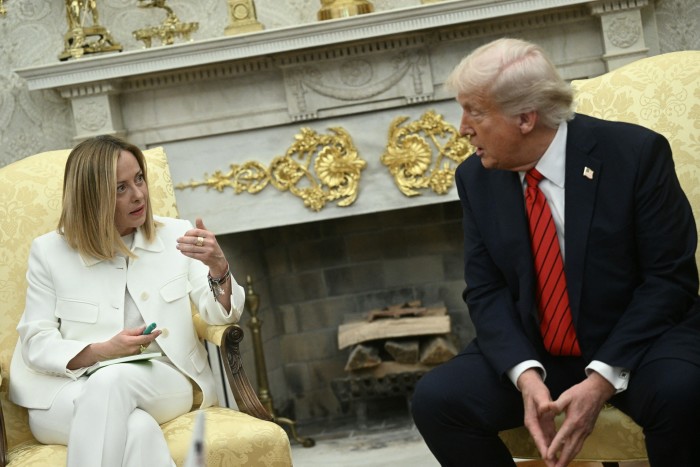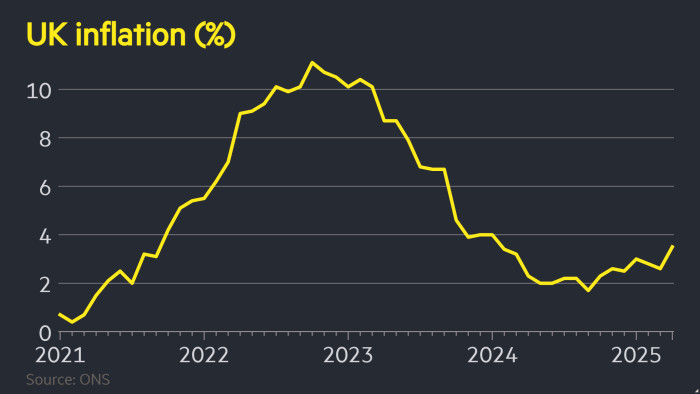Meloni angers Italian Americans with tighter citizenship rules

Italy’s decision to tighten citizenship rules for the descendants of overseas emigrants has triggered an uproar in the US, home to a large Italian diaspora.
Rome had long allowed any direct descendant of citizens who lived in Italy as far back as 1861 to obtain an Italian passport.
But Giorgia Meloni’s right-wing government is restricting the eligibility criteria to children and grandchildren of Italian nationals, after a surge of applications from Latin America.
The rules, which entered into force in March and were codified into law on Tuesday, have caused dismay across the Atlantic, where some US citizens are exploring relocation to Europe especially after Donald Trump’s return to the White House.
“People are very upset and frustrated,” said attorney Marco Permunian, founder of Italian Citizenship Assistance, an NGO that helps Americans document their ancestry.
“The Italian American community has always had a very strong feeling of pride in their heritage and a lot of them took this very personally,” Permunian added. “A lot of them are preparing to fight this law. They are very motivated and they are not going to let it go.”
People familiar with the matter said the Trump administration, which has cracked down on illegal immigration, was concerned about the number of Latin Americans using Italian passports to enter the US visa-free, and then staying permanently.
The US Department of Homeland Security declined to comment.
Meloni has maintained friendly relations with Trump, with whom she shares a tough stance on migration.
The US is home to an estimated 16mn to 20mn Italian Americans, whose ancestors mostly emigrated in the late 1800s and early 1900s when the community represented more than 10 per cent of the US population. Millions more moved to Latin America in the same period.
Rome has claimed that up to 80mn people had a claim under the old rules — more than the country’s own population. The system was overloaded, with a backlog of 60,000 applications from overseas, authorities said.
Meloni’s government first moved to tighten the rules in late March by issuing an emergency decree that changed the eligibility criteria with immediate effect. The government then transposed the rules into law, with the parliament giving its final approval on Tuesday.
US lawmakers have warned Rome’s move “risked alienating” tens of thousands of Italian Americans who had “invested significant time, effort and financial resources” in preparing to apply for Italian citizenship.
“At a time when the transatlantic relationship is under new pressures, the reassuring voices of 20mn Italian Americans serve as bridges between our nations,” a letter signed by the four co-chairs of the Italian American Congressional Delegation said.
Antonio Tajani, the foreign minister, defended the move as a necessary response to the surge in Latin Americans obtaining Italian passports not to migrate to Italy, but to travel to the US and Europe more easily.
“The granting of citizenship is a serious matter,” he said. “It must not be a tool to go on trips to Miami or other places with a European passport.”
In the last decade, the number of Italian citizens living abroad had jumped 40 per cent from 4.6mn to more than 6.4mn — mainly driven by growing numbers of dual citizens.
Italian senator Marco Lisei, a member of Meloni’s right-wing Brothers of Italy party, said Rome had no choice to overhaul rules being abused by people with little interest in Italy.
“The conservative right-wing has always considered Italians abroad to be the best ambassadors of Italy . . . an extraordinary asset,” he told the FT. “But then, a real traffic in citizenship emerged, which has forced the government to intervene.”
Rome’s abrupt move has riled the Italian diaspora in the US, as many realised their path to potential citizenship was blocked.
“One day you are entitled to it, the next day you are not,” said Jacopo Zamboni, managing partner at Henley & Partners, the London-based migration consultancy. “It will definitely have a huge impact.”
Groups such as the National Italian American Foundation and the Italian Sons and Daughters of America lobbied to prevent the emergency decree from becoming permanent law.
NIAF did win some concessions: people whose citizenship applications were at an advanced stage in the process will still be eligible under the old rules. Also, Rome is allowing people who had lost their Italian citizenship when they were naturalised in the US to reclaim Italian passports.
Until 1992, Italy did not recognise dual nationality, so immigrants who were naturalised as US citizens had to give up their Italian citizenship. The Italian government had planned to also bar those dual nationals from obtaining Italian passports, but has relented after intense lobby.
Still, Robert Allegrini, NIAF’s president, said the association was “disappointed” that the changes would “make it even more difficult” for the descents of Italian immigrants to pursue citizenship claims.
Additional reporting by James Politi in Washington








